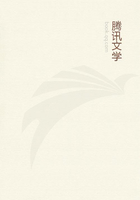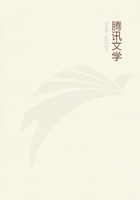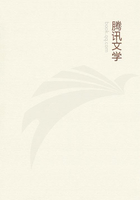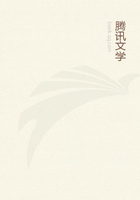The Malays are not the Aborigines of this singular spit of land, and, they are its colonists rather than its conquerors. Their histories, which are chiefly traditional, state that the extremity of the Peninsula was peopled by a Malay emigration from Sumatra about the middle of the twelfth century, and that the descendants of these colonists settled Malacca and other places on the coast about a century later. Tradition refers the peopling of the interior States to another and later migration from Sumatra, with a chief at its head, who, with all his followers, married Aboriginal wives; the Aboriginal tribes retreating into the jungles and mountains as the Malays spread themselves over the region now known as the States of the Negri Sembilan. The conquest or colonization of the Malay Peninsula by the Malays is not, however, properly speaking, matter of history, and the origin of the Malay race and its early history are only matters of more or less reasonable hypothesis. It is fair, however, to presume that Sumatra was the ancient seat of the race, and the wonderful valley of Menangkabau, surrounded by mountains ten thousand feet in height, that of its earliest civilization. The only Malay "colonial" kingdoms on the Peninsula which ever attained any importance were those of Malacca and Johore, and even their reliable history begins with the arrival of the Portuguese. The conversion of the Sumatra Malays to Mohammedanism arose mainly out of their commercial intercourse with Arabia; it was slow, not violent, and is supposed to have begun in the thirteenth century.
A population of "Wild Tribes," variously estimated at from eight thousand to eleven thousand souls, is still found in the Peninsula, and even if research should eventually prove them not to be its Aborigines, they are, without doubt, the same races which were found inhabiting it by the earliest Malay colonists.
These are frequently called by the Malays "Orang Benua," or "men of the country," but they are likewise called "Orang-outang," the name which we apply to the big ape of Borneo. The accompanying engraving represents very faithfully the "Orang-outang" of the interior. The few accounts given of the wild tribes vary considerably, but apparently they may be divided into two classes, the Samangs, or Oriental Negroes or Negritos and the Orang Benua, frequently called Jakuns, and in Perak Sakei. By the Malays they are called indiscriminately Kafirs or infidels, and are interesting to them only in so far as they can use them for bearing burdens, clearing jungle, procuring gutta, and in child-stealing, an abominable Malay custom, which, it is hoped, has received its death-blow in Perak at least.
The Samangs are about the same height as the Malays, but their hair, instead of being lank and straight like theirs, is short and curly, though not woolly like that of the African negro, and their complexions, or rather skins, are of a dark brown, nearly black. Their noses, it is said, incline to be flat, their foreheads recede, and their lips are thick. They live in rude and easily removable huts made of leaves and branches, subsist on jungle birds, beasts, roots, and fruits, and wear a scanty covering made from the inner bark of a species of Artocarpus. They are expert hunters, and have most ingenious methods of capturing both the elephant and the "recluse rhinoceros."
They are divided into tribes, which are ruled by chiefs on the patriarchal system. Of their customs and beliefs, if they have any, almost nothing is known. They are singularly shy, and shun intercourse with men of other races. It has been supposed that they worship the sun.
The Orang Benua or Orang-outang, frequently called Sakeis or Jakuns, consist of various tribes with different names, thinly scattered among the forests of the chain of mountains which runs down the middle of the Peninsula from Kedah to Point Romania.* In appearance and color they greatly resemble the Malays, and there is a very strong general resemblance between their dialects and pure Malayan. They have remarkably bright and expressive eyes, with nothing Mongolian about their internal angles, and the forehead is low rather than receding.
The mouth is wide and the lips are large, the lower part of the face projects, the nose is small, the nostrils are divergent, and the cheek bones are prominent. The hair is black, but it often looks rusty or tawny from exposure to the sun, against which it is their only protection. It is very abundant and long, and usually matted and curly, but not woolly. They have broad chests and very sturdy muscular limbs.
They are, however, much shorter in stature than the Malays, the men in some of the tribes rarely exceeding four feet eight inches in height, and the women four feet four. Their clothing consists of a bark cloth waist-cloth. Some of the tribes live in huts of the most primitive description supported on posts, while others, often spoken of as the "tree people," build wigwams on platforms, mainly supported by the forking branches of trees, at a height of from twenty to thirty feet.
These wild people, says Mr. Daly, lead a gregarious life, rarely remaining long in one place for fear of their wives and children being kidnapped by the Malays. They fly at the approach of strangers. As a rule, their life is nomadic, and they live by hunting, fishing, and on jungle fruits. They are divided into tribes governed by elders. They reverence the sun, but have no form of worship, and are believed to be destitute of even the most rudimentary ideas of religion. Their weapon is the sumpitan, a blow-gun, from which poisoned arrows are expelled.

